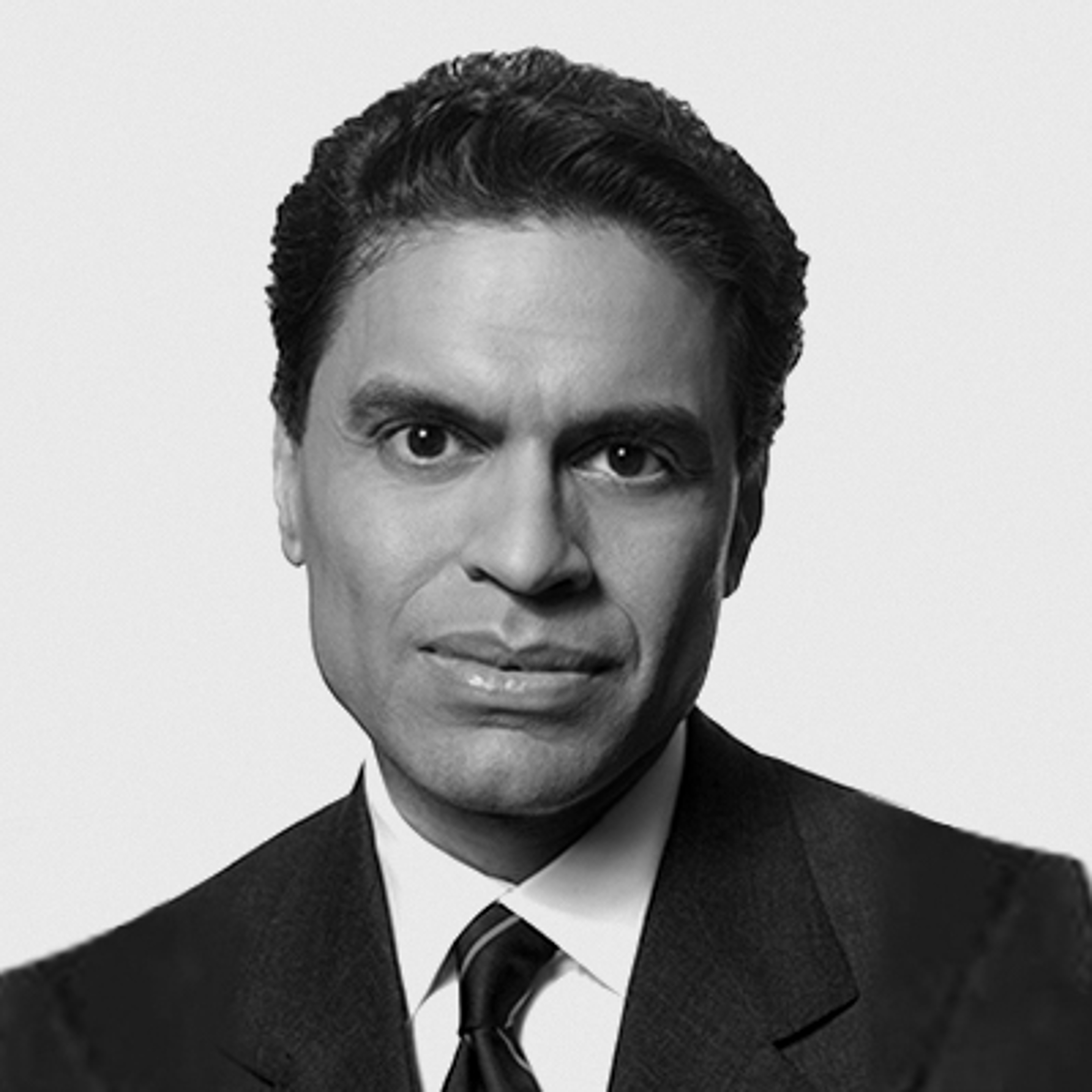Let's talk about the phrase that has taken the world by storm: "America First." It's not just a slogan; it's a movement that has reshaped global politics and sparked intense debates. From Fareed Zakaria's insightful analysis to its implications on international relations, this phrase has become a focal point of discussion. So, why does "America First" matter so much, and how does it affect the world we live in? Let's dive in and explore the nuances behind this powerful concept.
You know how sometimes a phrase just sticks? Well, "America First" is one of those phrases that has stuck like glue, especially in the realm of politics. It's a term that evokes strong emotions—whether you're cheering it on or questioning its validity. Fareed Zakaria, one of the most respected voices in global affairs, has dissected this concept with a critical eye, offering us a deeper understanding of its implications.
Now, before we dive headfirst into the nitty-gritty, let's set the stage. This article will explore the history, significance, and impact of "America First" through the lens of Fareed Zakaria's expertise. We'll cover everything from its origins to its role in shaping modern geopolitics. So, buckle up, because we're about to take a deep dive into the world of global politics and policy-making.
- Orlando Brown Meth The Untold Story You Need To Know
- Olivia Dunham Fringe Actress The Fascinating Journey Of A Scifi Icon
Understanding the Origins of "America First"
Before we get too far into the weeds, let's rewind a bit and understand where this whole "America First" thing came from. The phrase dates back to the early 20th century, but it really gained traction in recent years. It's like a time capsule that reopened with a bang, bringing with it a whole lot of baggage.
Back in 1940, the "America First Committee" was formed to promote non-interventionism during World War II. Fast forward to modern times, and the phrase has taken on a whole new meaning. It's no longer just about staying out of foreign conflicts; it's about prioritizing domestic issues and putting the nation's interests first. Makes sense, right?
Key Figures Behind the Movement
Who are the big players in this game? Well, you can't talk about "America First" without mentioning the former President who made it his rallying cry. But it's not just about one person. There are economists, policymakers, and yes, even Fareed Zakaria, who have weighed in on the topic.
- Meet The Children Of Prince William A Royal Journey Into Their Lives
- Directv Directory Your Ultimate Guide To Seamless Tv Entertainment
Here's a quick list of key figures who have shaped the narrative:
- Donald Trump - The most prominent advocate of "America First."
- Peter Navarro - A key economic advisor who championed the policy.
- Fareed Zakaria - Providing a balanced, critical analysis of its implications.
Fareed Zakaria: Who is He, Really?
Biography of Fareed Zakaria
Let's take a moment to get to know the man behind the analysis. Fareed Zakaria is a journalist, author, and political commentator who has spent decades dissecting global affairs. Born in Mumbai, India, he moved to the United States to pursue his education, eventually earning degrees from Yale University.
| Full Name | Fareed Zakaria |
|---|---|
| Birthdate | January 20, 1964 |
| Place of Birth | Mumbai, India |
| Education | B.A., M.A., Ph.D. from Yale University |
| Profession | Journalist, Author, Political Commentator |
The Impact of "America First" on Global Trade
Now, let's talk trade. One of the biggest areas where "America First" has left its mark is in global trade. The policy has led to tariffs, trade wars, and a reevaluation of international trade agreements. It's like a giant game of chess, and every move has consequences.
Fareed Zakaria has pointed out that while protecting domestic industries is important, isolationism can have long-term negative effects. Think about it: if you cut yourself off from the global market, you risk losing out on opportunities for growth and innovation.
Key Trade Agreements Affected
Here's a rundown of some of the major trade agreements that have been impacted by "America First":
- NAFTA - Renegotiated into the USMCA.
- TPP - The U.S. withdrew from the Trans-Pacific Partnership.
- WTO - Tensions have risen over the role of the World Trade Organization.
Domestic Implications of "America First"
On the home front, "America First" has had a significant impact on domestic policies. From immigration to healthcare, the focus has been on prioritizing American citizens and addressing domestic issues. But is this approach sustainable in the long run?
Fareed Zakaria argues that while addressing domestic concerns is crucial, it shouldn't come at the expense of international cooperation. After all, in today's interconnected world, what happens in one country can have ripple effects across the globe.
Key Domestic Policies Affected
Here's a snapshot of some of the domestic policies influenced by "America First":
- Immigration - Stricter policies and border control measures.
- Healthcare - Focus on reducing costs and improving access for Americans.
- Education - Emphasis on STEM fields and vocational training.
International Reactions to "America First"
So, how have other countries reacted to this shift in U.S. policy? Let's just say it hasn't been all sunshine and rainbows. Allies and adversaries alike have had to adjust to a new reality where the U.S. is less engaged in global affairs.
Fareed Zakaria has highlighted that while some countries have welcomed the U.S.'s focus on domestic issues, others have expressed concerns about the long-term implications for global stability. It's a delicate balance, and one that requires careful consideration.
Key Alliances Affected
Here are some of the major alliances impacted by "America First":
- NATO - Questions about the U.S.'s commitment to collective defense.
- EU - Strained relations over trade and security issues.
- Asian Allies - Concerns about U.S. engagement in the Indo-Pacific region.
Economic Impacts of "America First"
Let's talk numbers. The economic impacts of "America First" have been significant, both domestically and internationally. From job creation to market volatility, the policy has had far-reaching effects.
Fareed Zakaria has noted that while some industries have benefited from protectionist policies, others have suffered due to increased tariffs and reduced access to global markets. It's a complex picture that requires a nuanced understanding of economics.
Key Economic Indicators
Here are some of the key economic indicators affected by "America First":
- GDP Growth - Fluctuations due to trade tensions.
- Unemployment Rates - Mixed results depending on the industry.
- Inflation - Rising costs due to tariffs and supply chain disruptions.
Social and Cultural Implications
Finally, let's not forget the social and cultural implications of "America First." The policy has sparked debates about identity, nationalism, and global citizenship. It's a conversation that goes beyond politics and touches on the very fabric of society.
Fareed Zakaria has emphasized that while it's important to celebrate national identity, it's equally important to recognize the value of diversity and global cooperation. It's a message that resonates with many, especially in today's increasingly interconnected world.
Key Social Issues Affected
Here are some of the key social issues impacted by "America First":
- Immigration Policy - Debates over who belongs and who doesn't.
- Cultural Identity - Balancing national pride with global awareness.
- Social Justice - Addressing inequalities and promoting inclusivity.
Conclusion
So, there you have it—a deep dive into the world of "America First" through the lens of Fareed Zakaria's expertise. From its origins to its implications, this phrase has reshaped global politics and sparked intense debates. It's a reminder that policies, no matter how well-intentioned, have consequences that ripple far beyond their immediate impact.
As we move forward, it's crucial to continue the conversation about how best to balance national interests with global cooperation. Whether you're a fan of "America First" or not, one thing is clear: the world is watching, and the decisions we make today will shape the future for generations to come.
So, what do you think? Leave a comment below and let us know your thoughts. And don't forget to share this article with your friends and family. Together, we can keep the conversation going and make a difference in the world we live in.
Table of Contents
- Understanding the Origins of "America First"
- Key Figures Behind the Movement
- Fareed Zakaria: Who is He, Really?
- The Impact of "America First" on Global Trade
- Domestic Implications of "America First"
- International Reactions to "America First"
- Economic Impacts of "America First"
- Social and Cultural Implications
- Conclusion
- Is Doordash Or Ubereats Cheaper The Ultimate Guide To Food Delivery Wars
- Lyn May Familia The Iconic Queen Of Mexican Showbiz


